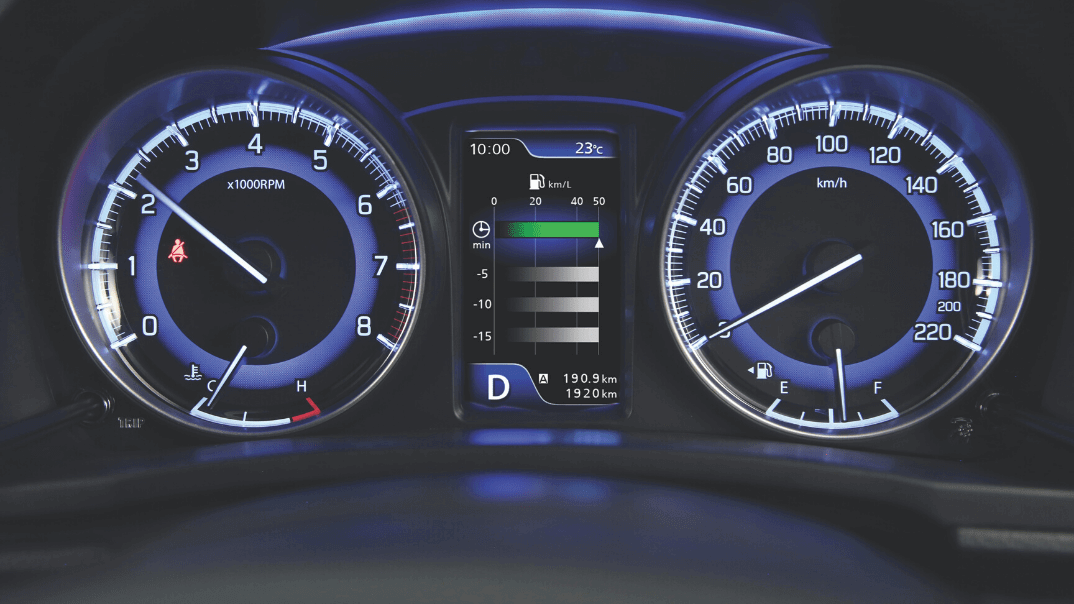 One of the key deciding factors when looking for a new car is whether to opt for a petrol or diesel engine. Whatever your preference, a little bit of knowledge on how the two engines work never hurts as it can save you some buyer’s remorse down the road and help you make the right choice for your lifestyle.
One of the key deciding factors when looking for a new car is whether to opt for a petrol or diesel engine. Whatever your preference, a little bit of knowledge on how the two engines work never hurts as it can save you some buyer’s remorse down the road and help you make the right choice for your lifestyle.
The great debate: petrol vs diesel
Ironically, consumers have been arguing the ‘petrol vs diesel’ point for so many years that the majority of us (unless you’re an absolute car nut) have missed many of the innovations over the past few years. Petrol engines have become much more frugal, while diesel engines have been refined, often leaving very little difference between the two if you simply use your car for your daily commute, shopping and school runs.
Traditionally, and especially in South Africa, diesel engines are considered more fuel efficient and cheaper to run. Petrol is considered more pricey to operate seeing as the petrol price is always higher than diesel. That said, diesel engines are more expensive to manufacture, which means that the asking price for a diesel vehicle is higher than its petrol-powered counterpart.
In the past, it was often true that the long-term savings on fuel eventually made diesel cars more cost-effective in the long run, despite the higher initial asking price. This interesting comparison, however, shows that is no longer the case, with a few exceptions. The reality is that fuel consumption on modern petrol engines has been improved dramatically, to the point that many are now cheaper to run than a diesel - even with the difference in fuel price. This is precisely why manufacturers such as Suzuki opt to focus on petrol engines - because they have surpassed the economy of diesel, while still delivering more than enough power.
So what’s the difference?
At their core, petrol and diesel engines are similar in that they both convert fuel into energy by igniting the fuel and using the resulting energy to set the entire vehicle in motion and keep it running.
Petrol ignition
A petrol engine is designed to mix fuel with air at a specific ratio. This flammable gas mixture is then ignited with sparks created by spark plugs. This series of combustions is what keeps the engine running.
Diesel ignition
A diesel engine compresses the air, which causes the air to heat up. The fuel is then injected into the heated and compressed air, which causes it to ignite. As with a petrol engine, it’s the series of combustions that keep the engine running.
What happens if I put the wrong fuel into my car?
Petrol and diesel are two completely different types of fuel, with different carbon properties. Petrol ignites at around 280 °C while diesel ignites at around 210 °C. Because the ignition systems on the two different engines are set up for different temperatures and fuel, adding the wrong fuel to your tank can have disastrous and extremely expensive consequences.
If you suspect that the wrong fuel has been added to your car, do not start the engine and phone your dealership immediately. If the fuel has not made its way through the engine (if you haven’t started the car yet), the required repair may be contained to draining and cleaning the fuel tank. If, however, the car was started and driven a few kilometres, it is going to be a much more complicated repair. Depending on how much of the correct fuel is in your tank when you put in the incorrect fuel, it is possible to drive a few kilometres before you notice anything wrong, or the engine simply stops working. By the time the engine seizes, you may have done irreparable damage. It is therefore advised to always double-check that your tank is being filled with the correct fuel - just in case.
At the end of the day, petrol vs diesel really comes down to personal preference. The trend, however, is for manufacturers to focus on optimising petrol engines - because they are more cost-effective to make. Thanks to this continuous petrol innovation, modern petrol engines have in many ways surpassed diesel - especially in terms of efficiency.
The Suzuki blog is jam-packed with helpful articles on all things auto. Sign up here and get our articles sent to your inbox
Our team of experts at Suzuki have shared their advice on looking after your vehicle in our car 101 ebook. It’s filled with facts, tips and practical tidbits for both first-time and longstanding car drivers.

![How Things Work: Rotary Engines [VIDEO]](https://blog.suzukiauto.co.za/hubfs/Blue%20Dzire%20_%20Driving%20-%20Front%20_%20Blog%20_%202025%20.png)
![HOW THINGS WORK: Engine braking [VIDEO]](https://blog.suzukiauto.co.za/hubfs/Swift%20MC%20interior.png)
